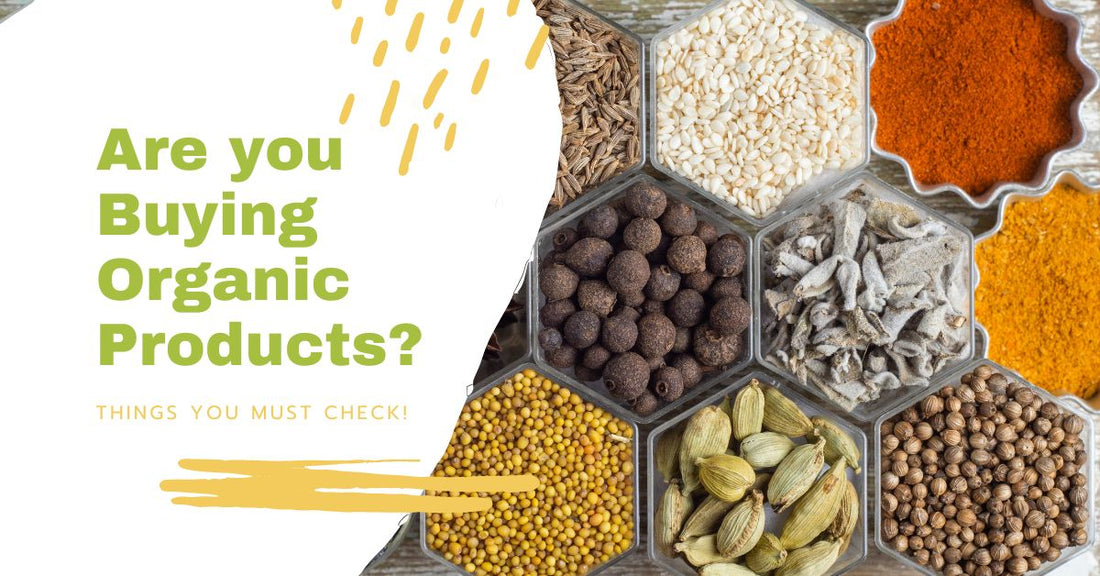Every day, the Indian market faces a massive surge of new organic items that seem healthy and unique. The range of options they show and the claims made by each of these goods bring us questions regarding the veracity of their claims and the authenticity of these products.
While it may seem quite complicated, consumers do not face too much difficulty in determining if a product is truly organic or not. Under the Organic Product umbrella, the Indian government has taken active steps to safeguard consumers' rights and prevent the spread of counterfeit goods.
How to do the purity test when it comes to organic products?
Check out the logos.
The Food Safety and Standards Authority of India (FSSAI) and other organizations that work in the sector have established distinct emblems to assist buyers in checking real organic products. This is similar to how green and red dots on items operate and indicate whether they are vegetarian or non-vegetarian.
- Jaivik Bharat
It is important to look for the Food Safety and Standard Authority of India's uniform organic food product logo - Jaivik Bharat- and the FSSAI Logo License number.
- India Organic Logo (NPOP Certified)
Apart from the abovementioned, the product may have the India Organic Logo (NPOP certified), and it may also include the FSSAI license number. If we go by the National Program for Organic Production (NPOP) System: A single ingredient product that fulfills all requirements as the standards have given it can be labeled as 'Organic.' A multi-ingredient product that has a composition of 95% certified organic components can get the label 'Certified Organic.' Aside from the logo, it would also contain the name and logo of the Accredited Certification Body, and it must contain the Accreditation Number as well.
- PSG- India Certified Organic Food Products
The organic product must also bear the PGS-India logo and the Jaivik Bharat mark. These are the necessary terms of the Participatory Guarantee System (PGS)-India system: When the products fulfill all the requirements, a single ingredient product may get the label 'PGS- Organic.' A multi-ingredient product with at least 95% organic components can get the label 'PGS- Organic.' If we see both the programs (NPOP and PGS-India), they are self-contained, and items certified under a single system cannot be under the process or be labeled under the other. While NPOP-approved items can get traded in local and international markets, including imports, PGS-India-certified products can only undergo trading in the domestic market.
Check out the online database.
Apart from the FSSAI, in partnership with APEDA and PGS-India, there has been the creation of a web portal to combine all of the information in the form of the "Indian Organic Integrity Data Base." This has been able to assist consumers in verifying the authenticity of organic food. Consumers may use this gateway to comprehensively learn about the producer, the certification system, and the availability of other factors relating to certified organic products.
It is a known fact that organically grown foods have a higher nutrient content and do not face the problem of added chemicals. Finding organic food is quite a challenge in a world where there are many unsafe food sources. To counter that, you get a wide variety of authentic organic food from Mittal Organic. We guarantee not only the authenticity of the food but also the quality.

